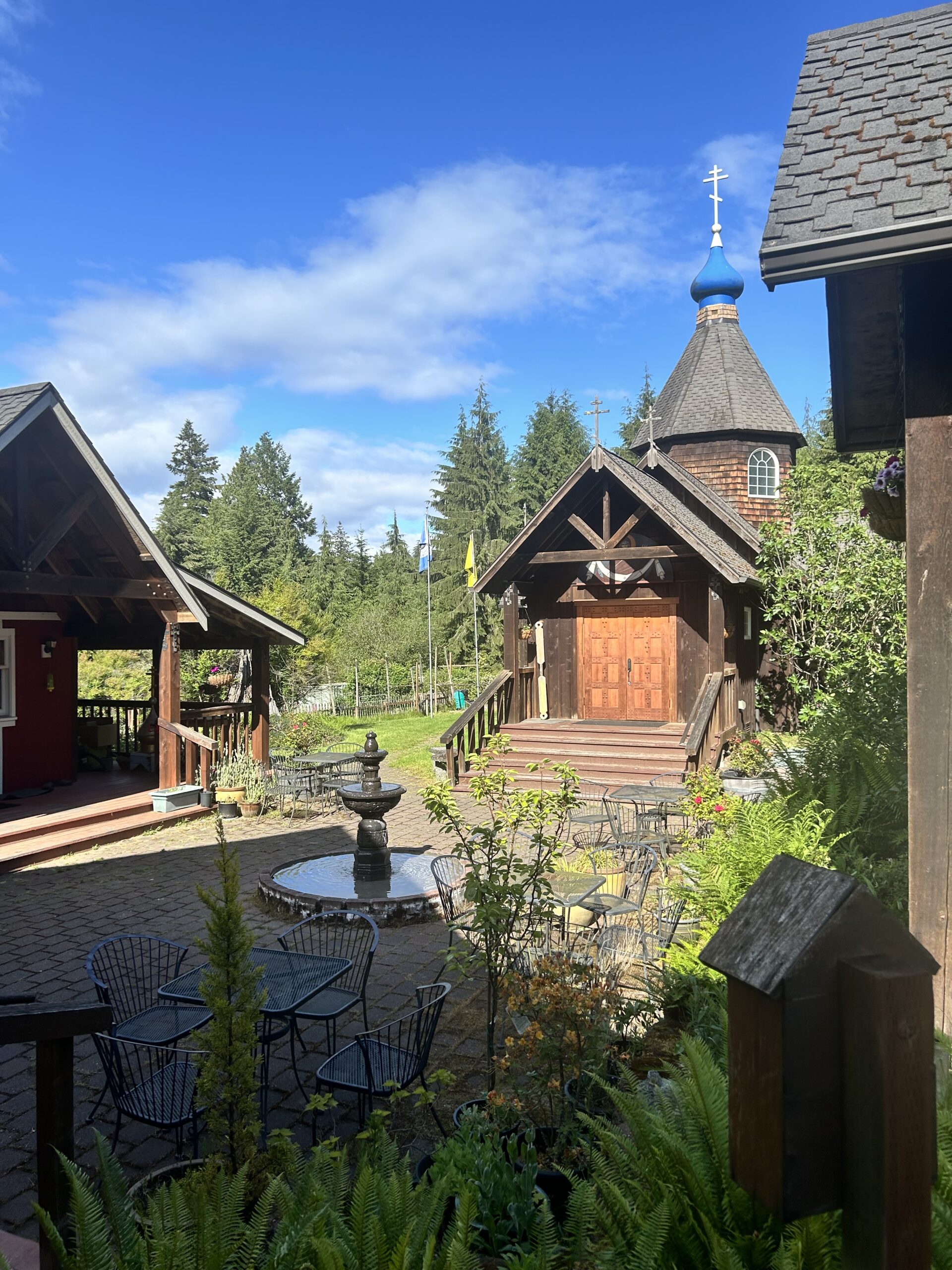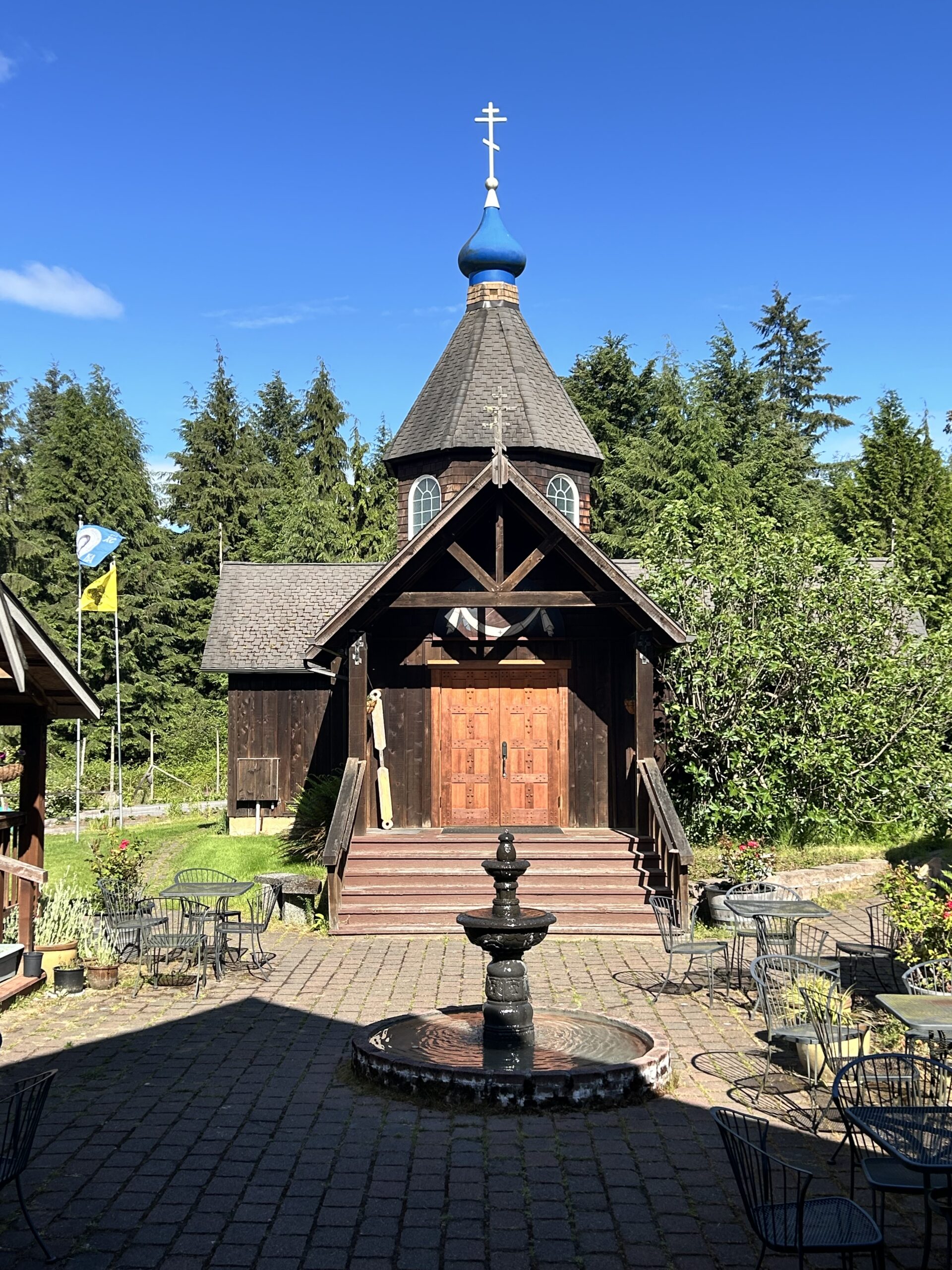Dead to the World, but Alive in Christ

We cannot give Christ to others unless we have welcomed Him into the central place in our own heart. We must know and love Christ, personally, before others can see Him in us. When we are willing to sacrifice self for the sake of Christ, and live according to the Gospels, we will become living temples of the Most High, and the whole world will be changed.
The Gospel of Christ is imparted by word and example, and the love of Christ shines forth by our witness. We love and please God by following the commandments, and proclaiming the Good News, is our vocation.
We are not called to minimal holiness, but to a full expression of holiness, and are empowered for this transformed life by the action of the Holy Spirit. God’s sanctifying Grace is not merely the absence of evil or sin, but the presence of Divine Love in the soul.
We are called to holiness, for the Scriptures say, “Be ye perfect as your Heavenly Father is perfect (Matthew 5:48).” We were created by God to share in His Divinity, and we will never be completely happy until we have died to self, and been made alive in Christ.
With love in Christ,
Abbot Tryphon

Wednesday May 29, 2024 / May 16, 2024
Mid-Pentecost or Prepolovenie. Tone three.
Fast. Fish Allowed
“Mozdok” and “Dubensk-Krasnogorodsk” (17th c.) Icons of the Most Holy Theotokos (movable holiday on the Prepolovenie – Mid-Pentecost).
Venerable Theodore the Sanctified (368), disciple of St. Pachomius the Great.
Translation of the relics (1545) of Venerable Ephraim, abbot of Perekom (1492).
St. Matthew, Hieromonk of Yaransk in Vyatka (1927).
Venerables Cassian (1537) and Laurence (1548), abbots of Komel (Vologda).
St. Alexander, archbishop of Jerusalem (3rd c.).
Martyrs Vitus, Modestus and Crescentia at Lucania (303).
Blessed child Musa of Rome (5th c.).
Monk-martyrs of the community of St. Sava the Sanctified (610).
St. George II, bishop of Mitylene (842).
Martyr Vukasin of Serbia (1943).
Martyr Abdiesus, bishop, and companions in Persia (418).
St. Nicholas Mystikos, patriarch of Constantinople (930) (Greek).
New Martyr Nicholas of Metsovo, whose relics are at Meteora (1617) (Greek).
Martyrs Vitus, Modestus, and Crescentia at Lucania (303).
Venerable Brendan the Voyager, abbot of Clonfert (577) (Celtic & British).
Martyr Peter of Blachernae (Greek).
St. Euphemia near Neaorion (Greek).
Hieromartyr Theodore of Vrsac in Banat, Serbia (1595).
St. Carantoc of Carhampton.
The Scripture Readings
Acts 14:6-18
6 They became aware of it and fled to Lystra and Derbe, cities of Lycaonia, and to the surrounding region. 7 And they were preaching the gospel there.
Idolatry at Lystra
8 And in Lystra a certain man without strength in his feet was sitting, a cripple from his mother’s womb, who had never walked. 9 This man heard Paul speaking. Paul, observing him intently and seeing that he had faith to be healed, 10 said with a loud voice, “Stand up straight on your feet!” And he leaped and walked. 11 Now when the people saw what Paul had done, they raised their voices, saying in the Lycaonian language, “The gods have come down to us in the likeness of men!” 12 And Barnabas they called Zeus, and Paul, Hermes, because he was the chief speaker. 13 Then the priest of Zeus, whose temple was in front of their city, brought oxen and garlands to the gates, intending to sacrifice with the multitudes.
14 But when the apostles Barnabas and Paul heard this, they tore their clothes and ran in among the multitude, crying out 15 and saying, “Men, why are you doing these things? We also are men with the same nature as you, and preach to you that you should turn from these useless things to the living God, who made the heaven, the earth, the sea, and all things that are in them, 16 who in bygone generations allowed all nations to walk in their own ways. 17 Nevertheless He did not leave Himself without witness, in that He did good, gave us rain from heaven and fruitful seasons, filling our hearts with food and gladness.” 18 And with these sayings they could scarcely restrain the multitudes from sacrificing to them.
John 7:14-30
14 Now about the middle of the feast Jesus went up into the temple and taught. 15 And the Jews marveled, saying, “How does this Man know letters, having never studied?”
16 Jesus answered them and said, “My doctrine is not Mine, but His who sent Me. 17 If anyone wills to do His will, he shall know concerning the doctrine, whether it is from God or whether I speak on My own authority. 18 He who speaks from himself seeks his own glory; but He who seeks the glory of the One who sent Him is true, and no unrighteousness is in Him. 19 Did not Moses give you the law, yet none of you keeps the law? Why do you seek to kill Me?”
20 The people answered and said, “You have a demon. Who is seeking to kill You?”
21 Jesus answered and said to them, “I did one work, and you all marvel. 22 Moses therefore gave you circumcision (not that it is from Moses, but from the fathers), and you circumcise a man on the Sabbath. 23 If a man receives circumcision on the Sabbath, so that the law of Moses should not be broken, are you angry with Me because I made a man completely well on the Sabbath? 24 Do not judge according to appearance, but judge with righteous judgment.”
Could This Be the Christ?
25 Now some of them from Jerusalem said, “Is this not He whom they seek to kill? 26 But look! He speaks boldly, and they say nothing to Him. Do the rulers know indeed that this is truly the Christ? 27 However, we know where this Man is from; but when the Christ comes, no one knows where He is from.”
28 Then Jesus cried out, as He taught in the temple, saying, “You both know Me, and you know where I am from; and I have not come of Myself, but He who sent Me is true, whom you do not know. 29 But I know Him, for I am from Him, and He sent Me.”
30 Therefore they sought to take Him; but no one laid a hand on Him, because His hour had not yet come.
